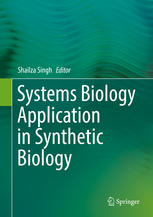

Most ebook files are in PDF format, so you can easily read them using various software such as Foxit Reader or directly on the Google Chrome browser.
Some ebook files are released by publishers in other formats such as .awz, .mobi, .epub, .fb2, etc. You may need to install specific software to read these formats on mobile/PC, such as Calibre.
Please read the tutorial at this link. https://ebooknice.com/page/post?id=faq
We offer FREE conversion to the popular formats you request; however, this may take some time. Therefore, right after payment, please email us, and we will try to provide the service as quickly as possible.
For some exceptional file formats or broken links (if any), please refrain from opening any disputes. Instead, email us first, and we will try to assist within a maximum of 6 hours.
EbookNice Team

Status:
Available4.6
6 reviewsThis book introduces students to methods that will help them understand behaviour in terms of cellular components and their interactions in non-intuitive ways, which calls for an interdisciplinary approach combining mathematical, chemical, computational and biological strategies. Tibor Ganti was one of the early pioneers who proposed a theoretical framework to understand living principles in terms of chemical transformation cycles and their coupling. The twenty-first century then brought with it a novel ‘systems’ paradigm, which shone new light on all previous work and was accompanied by numerous implications for the way we conceive of chemical and biological complexity today.
This book seeks to equip students to take advantage of any field that investigates living systems. Based on a conceptualisation of science-oriented branches, engineering-oriented branches and biology as astoundingly complex fields, those structures laden with biochemical detail encompass a deeper theory unifying our knowledge of designed systems.
Readers will be pleasantly surprised at how lucidly the topics are presented. The book offers an indispensable resource for students and professionals working in systems and synthetic biology or any of the various related fields of research.